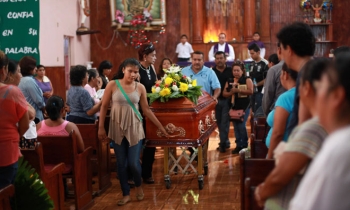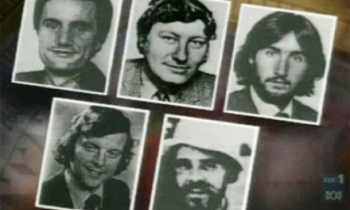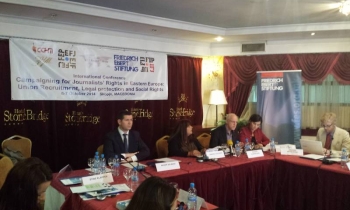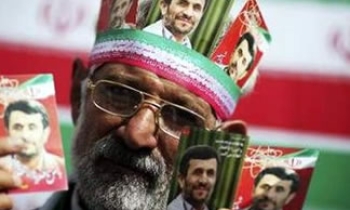America's journalism schools and newspaper publishers refused to aid Jewish refugee journalists who were fleeing Hitler, a leading Holocaust scholar has revealed. Another scholar has described how leaders of elite American universities not only ignored the plight of Jews under Hitler in the 1930s, but actually engaged in actions that helped enhance the Hitler regime's image in the West.

The revelations were made at a panel discussion on "America and the Holocaust: New Research," sponsored by the David S Wyman Institute for Holocaust Studies, as part of the annual conference of the Association for Jewish Studies (AJS), in Washington. The panel was chaired by Dr Rafael Medoff, Director, Wyman Institute.
Prof Laurel Leff, of Northeastern University, revealed, "While other university departments and disciplines added Jewish refugees to their faculties to help them escape Hitler, none of America's approximately forty journalism schools and departments took in Jewish refugee journalists, and no major newspaper hired refugee journalists."
In 1939, refugee advocates Prof David Reisman (later a famous Harvard sociologist) and Prof Carl Friedrich requested ten minutes to speak at the convention of the American Newspaper Publishers Association about the plight of Jewish refugee journalists. Their request was rejected.
Refusals to aid Jewish refugee journalists were often laced with antisemitic comments. Lawrence Murphy, dean of the University of Illinois School of Journalism and one of the leading figures in journalism education, opposed aiding the refugees and rationalised it on the grounds that it was for their own good.
"The minute that Jews show up in numbers they become a threat to the others ... they would occupy all the jobs there are [and] are quite likely to work together in filling the jobs," Murphy wrote. "We must hurt them to help them. We must keep them from becoming too prominent and assertive..."
Leff is the author of the critically-acclaimed new book about the New York Times and the Holocaust, 'Buried by The Times: The Holocaust and America's Most Important Newspaper,' which was published by Cambridge University Press earlier this year.
Prof Stephen Norwood, of the University of Oklahoma, said at the conference. "Despite book-burnings and anti-Jewish violence in Nazi Germany, the leaders of elite American universities such as Harvard, Yale, Columbia, and Johns Hopkins refused to speak out against the Hitler regime during 1933-1937. Columbia president Nicholas Butler expelled a student for leading an anti-Hitler rally on campus.
"Harvard president James Conant warmly welcomed Ernst Hanfstangl, a Harvard alumnus who was Hitler's foreign press secretary, when he visited the campus in 1934. The Massachusetts Institute of Technology hosted a visit by Nazi Germany's ambassador to the United States, Hans Luther."
Norwood said, "Even though German universities fired their Jewish professors and adopted a Nazi curriculum, prominent American universities continued to maintain relations with them. They exchanged students with German universities, and sent representatives to a celebration at the University of Heidelberg in 1936 (Williams College was one of the few that refused to participate).
"Harvard Law School dean Roscoe Pound accepted an honorary degree from the University of Berlin in 1934. Johns Hopkins president Isaiah Bowman, a famed geographer, accepted an honour from a Nazi geographical society."
Antisemitic comments that Prof Norwood found in the private correspondence of some prominent American university officials suggest that bigotry was at least part of the motive for their positions regarding Hitler and German Jewry. Harvard president Conant urged the DuPont Corporation not to hire the famous German Jewish chemist Max Bergmann, because he was "very definitely of the Jewish type."
Yale president James Rowland Angell asked his deans to examine whether Jewish students were engaged in cheating and financial wrongdoing. Johns Hopkins president Isaiah Bowman refused to sign a petition against anti-Jewish discrimination in Polish universities in 1937, and claimed the protest was the result of "pressure from Jews in New York."
The David S Wyman Institute for Holocaust Studies, located on the campus of Gratz College (near Philadelphia), is a research and education institute focusing on America's response to the Holocaust. It is named after historian and author of the 1984 bestseller 'The Abandonment of the Jews', the most important and influential book concerning the US response to Nazi genocide. The Institute’s Advisory Committee includes Nobel Peace Prize Laureate Elie Wiesel, members of Congress, and other luminaries.










